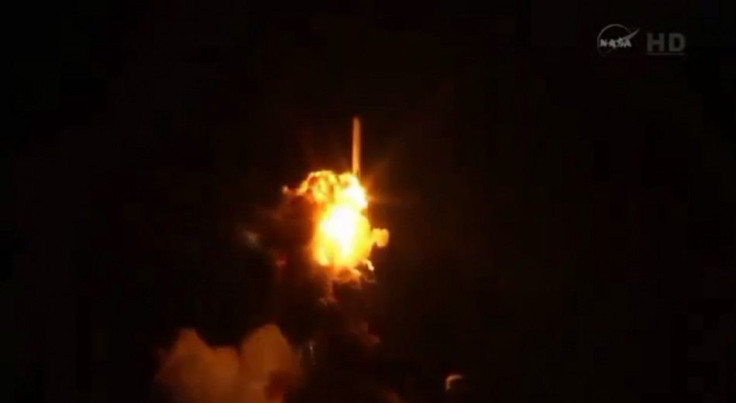Launch Of Antares Rocket Fails, Huge Explosion In Virginia

A supply rocket for the International Space Station exploded on Tuesday evening. The failed unmanned rocket did not, however, cause any "loss of life."
Even though The NASA-contracted rocket did not cause any death, there was significant vehicle and property damage. NASA said that the Orbital Sciences Corp. was set to launch the Antares rocket and Cygnus cargo spacecraft at 6:22 p.m. ET. The launch was scheduled to take place from the Wallops Flight Facility along the Atlantic Ocean. The spacecraft was going to carry 5,000 pounds of experiments and supplies to the ISS. The launch was earlier scheduled to take place on Monday. However, the launch was postponed as "a boat down range in the trajectory Antares would have flown had it lifted off," NASA said. The space agency said that there were no technical concerns with the spacecraft and 100% favourable weather for the launch. The launch director said that the rocket was going to carry "classified" equipment to the ISS, Reuters reported. Therefore, when the launch failed, the area around the debris field was maintained due to investigative and security reasons.
According to NASA spokesman Jay Bolden, mission control was trying to find out what had exactly gone wrong with the failed rocket. The rocket rose to into the air only for a few seconds before it exploded. NASA later tweeted that the launch failed six seconds after it had taken place. The rocket then plummeted along the eastern Virginia coast as it caused a massive fireball. Former NASA astronaut Mark Kelly said that such an explosion was expected to cause a massive fireball. "It takes a lot of propellant to take a spacecraft of that size moving 25 times the speed of sound. So when it fails, it's usually pretty catastrophic," he told CNN.
NASA has depended upon private companies for bringing materials to the space station after the space shuttle programme had ended. Even though it allows the companies to use its facilities to launch, it does not send anything directly to the ISS. The Orbital Sciences Corp. called Tuesday's incident as a "catastrophic failure." Frank Culbertson, the general manager of Orbital's Advanced Programs Group, said that the company would conduct a thorough investigation to understand the reason behind the failure.
Contact the writer: s.mukhopadhyay@ibtimes.com.au




















